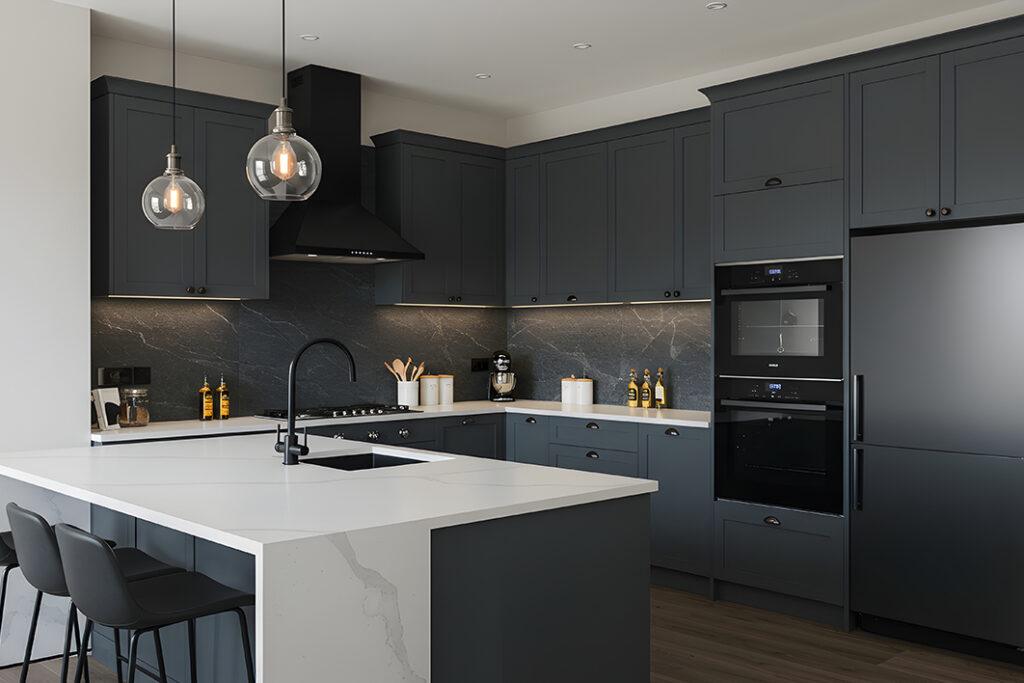
Combining the best qualities of natural stone with the benefits of modern engineering quartz is an ideal choice for busy kitchens and high-traffic areas. Its non-porous surface resists stains, scratches and bacteria — no sealing required.
Choose from a wide range of colors and styles in our Richardson, Texas, showroom.
Quartz is an engineered stone born from natural quartz, one of the Earth’s most abundant minerals. Through a precise process, these crystals are ground, mixed with resins and pigments, then molded under heat and pressure into sleek, durable slabs.
The result is a surface that echoes the beauty of natural stone while offering superior strength and consistency.
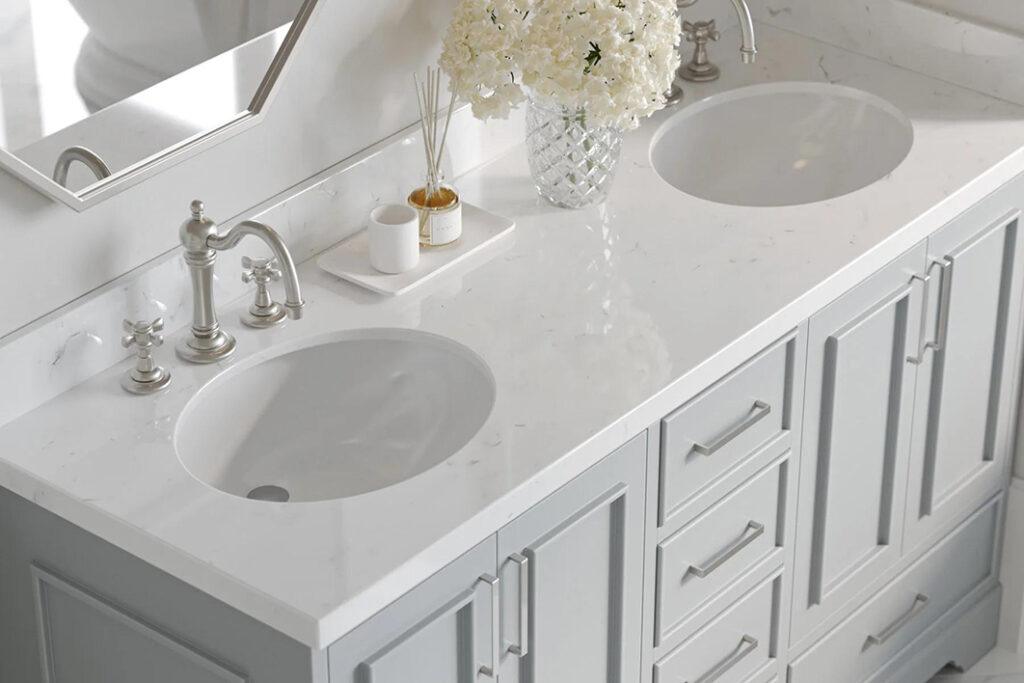
Lauded for its durability and consistent appearance, quartz is an engineered stone composed of roughly 90–95% natural quartz crystals, combined with resins and pigments. Ranking around 7 on the Mohs hardness scale, it’s highly resistant to scratches, stains, and etching. Slabs are typically available in two standard thicknesses: 2 centimeters (¾ inch) and 3 centimeters (1¼ inch).
Unlike natural stones, quartz surfaces are manufactured in controlled environments, allowing for a wide range of colors and patterns — from soft, marble-like veining to bold, contemporary designs. The finish options include polished, for a glossy, reflective look; honed, for a matte surface with a smooth feel; and textured or concrete-style finishes for a more modern, tactile aesthetic.
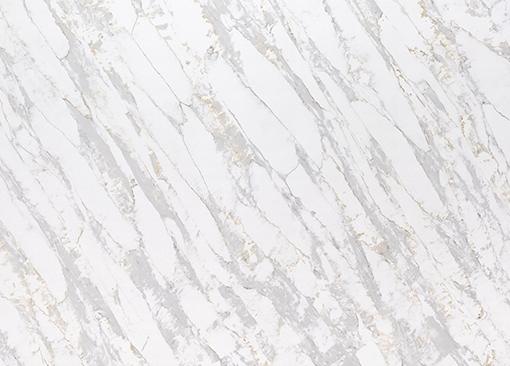
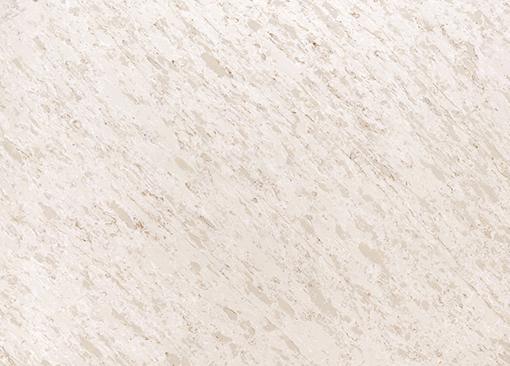
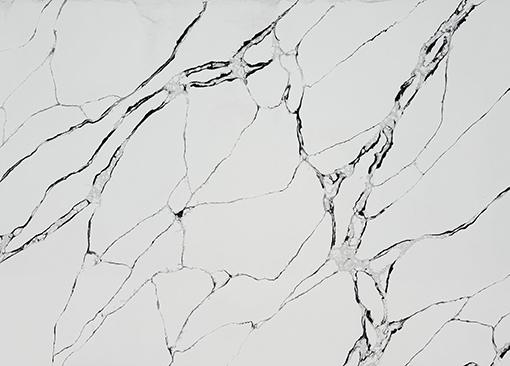
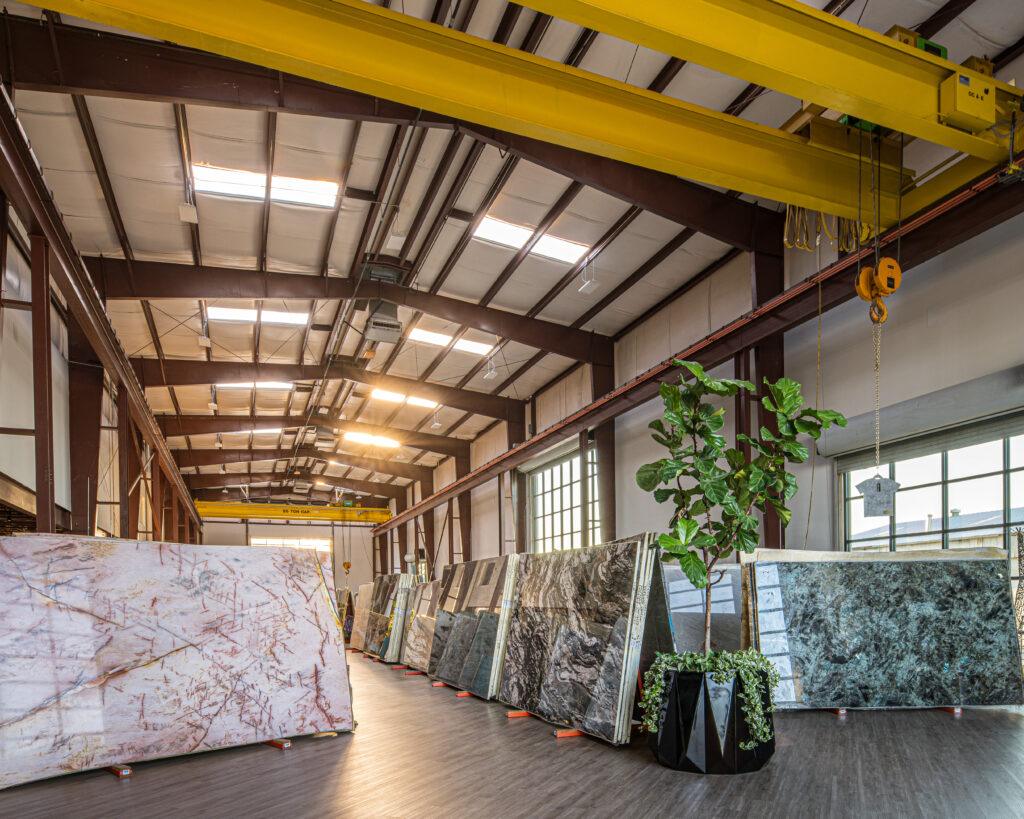
Quartz delivers — exceptionally durable, easy to maintain and built to perform in the busiest spaces.
Stop by our showroom or give us a call. Our team will walk you through a curated selection of quartz slabs and help you choose a surface that’s as tough as it is beautiful.
Kitchen countops, backsplashes and island
Bathroom vanities
Shower surrounds
Tub decks
Laundry room counters
Wet bars
Pantry or butler’s prep areas
Fireplace surrounds
Wall cladding and feature walls
Window sills
Tabletops and desktops
Exceptional Durability
One of the toughest countertop materials available, it’s resistant to scratches, chips and cracks.
Non-porous
Unlike natural stone, it’s non-porous, so it won’t absorb spills — no sealing required.
Low Maintenance
No special cleaners, sealing or upkeep is needed to keep it looking like new.
Consistent Appearance
Because quartz is engineered, patterns and colors are more uniform, making it easier to match slabs and maintain visual consistency
Heat- and Impact- Resistant
Handles the demands of daily use.
Hygienic and Food-Safe
The non-porous surface helps keep germs and bacteria at bay.
Clean with mild soap and water
Use a soft cloth or sponge with gentle dish soap for everyday cleaning.
Avoid:
Bleach, oven cleaners, or anything highly acidic or alkaline.
Use trivets, hot pads and cutting boards
Excessive heat and impact can damage the surface.
No sealing required
Unlike natural stone, quartz never needs to be sealed — it’s naturally non-porous and low-maintenance.
When choosing a countertop material, understanding the differences between quartz and granite can help you make the best decision for your home. While both materials are popular for their durability and aesthetics, they have distinct properties that set them apart. Quartz and granite have different material compositions, appearances and design, durability, maintenance requirements, longevity, vary in cost and value, and much more.
Quartz countertops are widely recognized for their durability, but when it comes to heat resistance, it’s important to understand their limitations. Quartz is engineered by combining natural quartz crystals with resins and other materials. While the natural quartz itself can handle high temperatures, the resin used to bind it is more sensitive to heat.
Quartz can generally withstand normal cooking temperatures. Placing a warm plate or a dish straight from the microwave won’t usually cause problems. However, quartz isn’t as heat-resistant as some natural stones like granite. If you place a hot pot or pan directly onto the surface, the intense heat can scorch the resin, causing discoloration or even cracking.
Quartz is moderately heat-resistant but not heat-proof. Texas Counter Fitters encourages our customers to take basic precautions—like using trivets or pot holders— and you can enjoy the benefits of a beautiful, low-maintenance surface without risking heat damage.
Unlike many natural stones, quartz countertops do not require sealing. Quartz is an engineered material made from natural quartz crystals combined with resins and pigments. The manufacturing process results in a non-porous surface that is naturally resistant to stains, bacteria, and moisture.
The non-porous nature of quartz means there are no microscopic holes where liquids or bacteria can seep in, making it inherently low-maintenance. As a result, quartz does not require sealing or resealing and comes in a wide range of colors. It maintains its resistance to spills, stains, and scratches without any additional treatment.
Quartz is well-known for its durability and resilience, making it a top choice for countertops in busy kitchens and bathrooms. Because it’s engineered by combining 90% ground quartz (a natural hard mineral) with 8-10% resins, polymers, and pigments, the resulting material is extremely hard and long-lasting. The appearance depends on how the quartz is ground: coarsely ground quartz produces a flecked appearance, while finely ground quartz produces a smooth look.
Quartz countertops are designed to be durable, versatile, and long-lasting, but they are primarily intended for indoor use. While quartz offers many benefits, it’s not the ideal material for outdoor installations.
"*" indicates required fields
